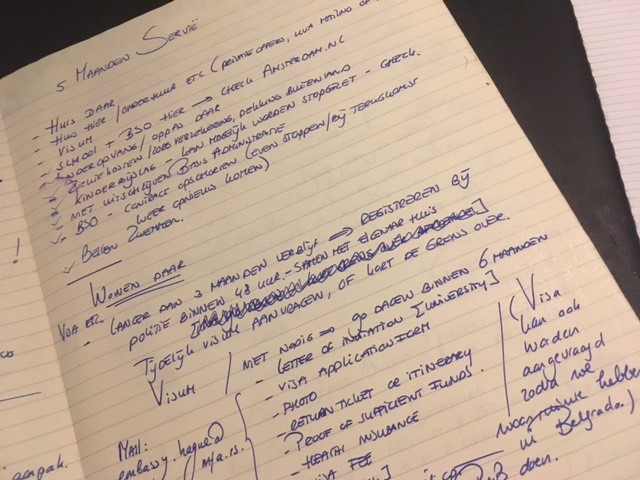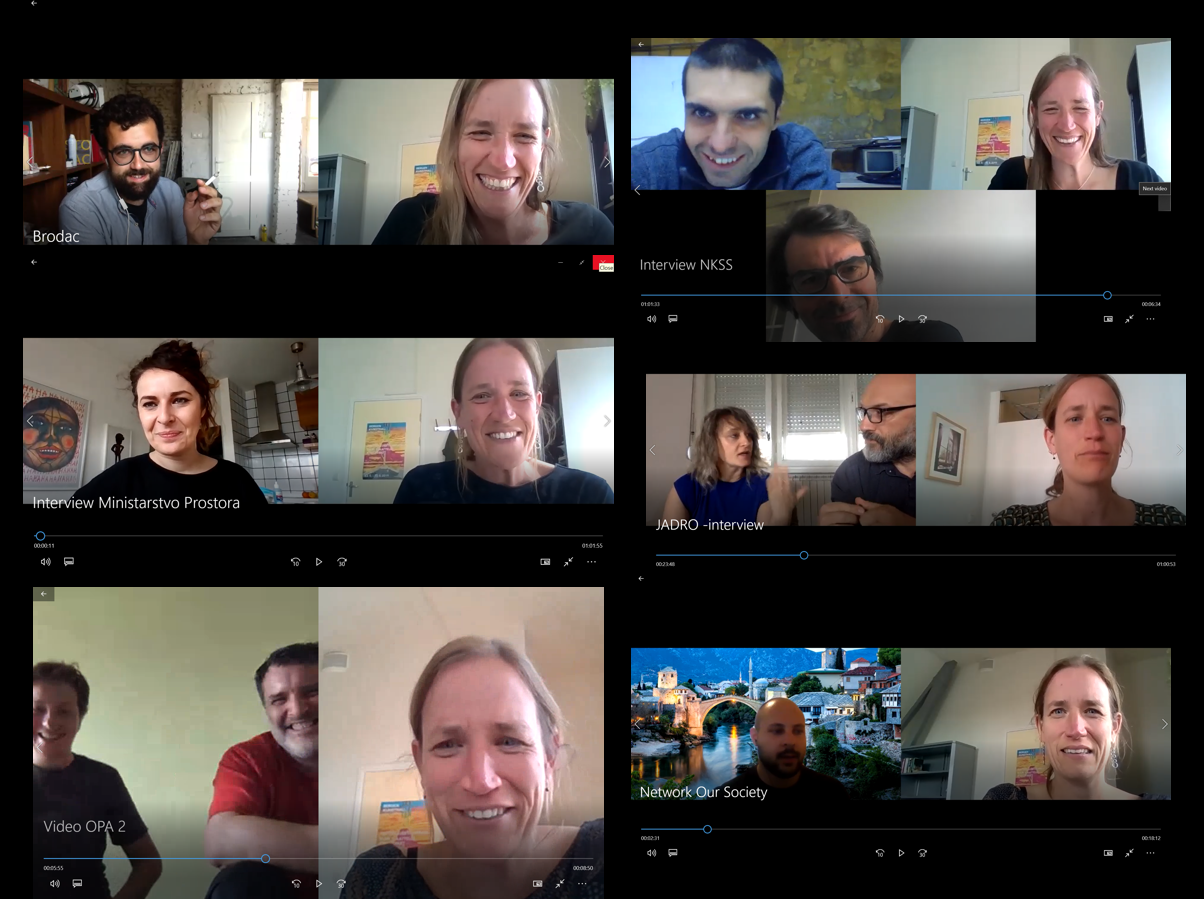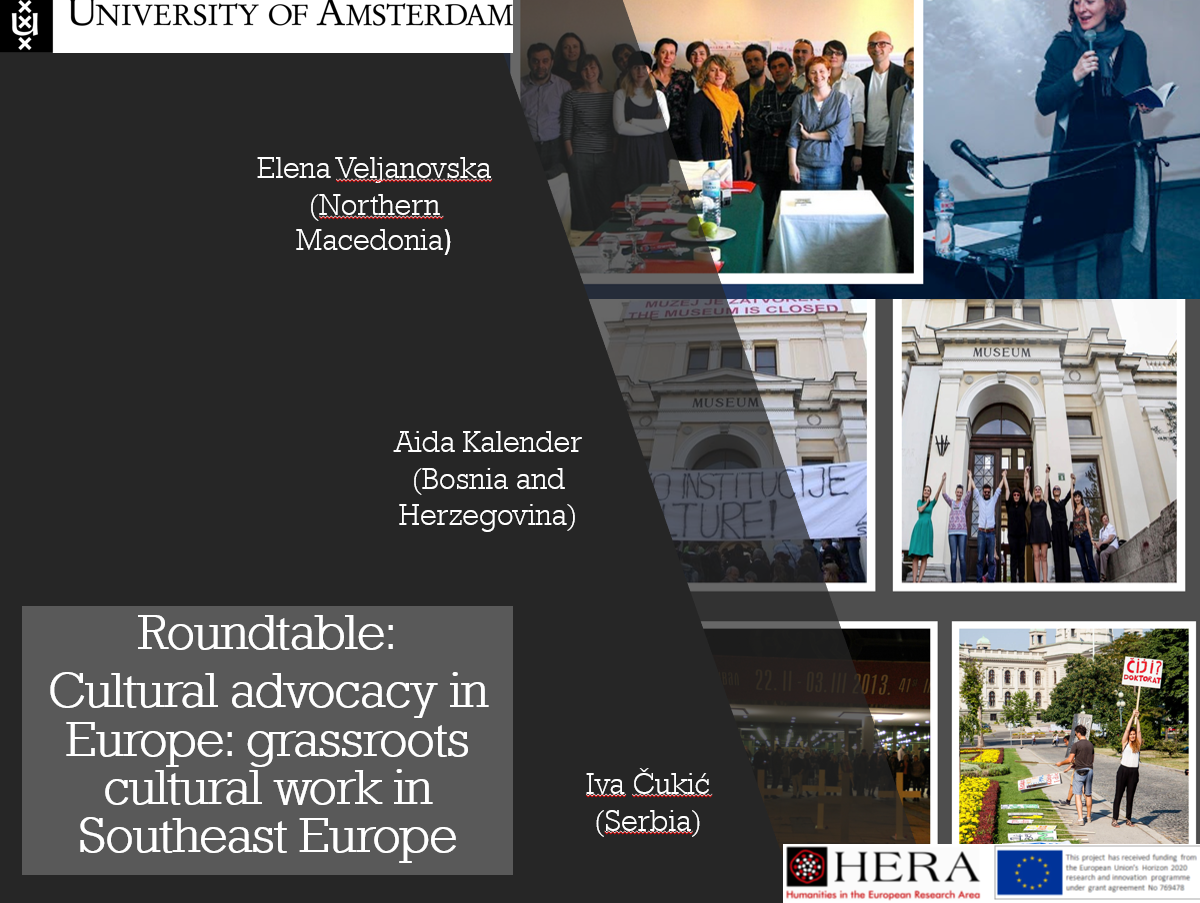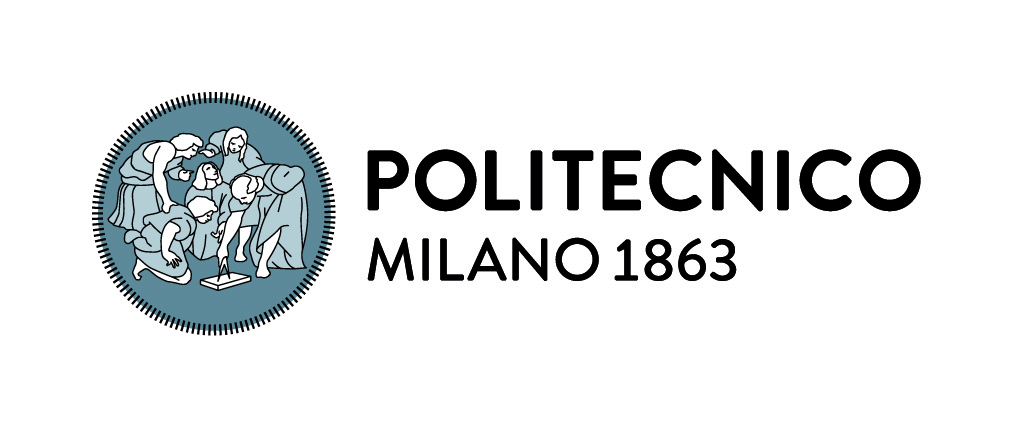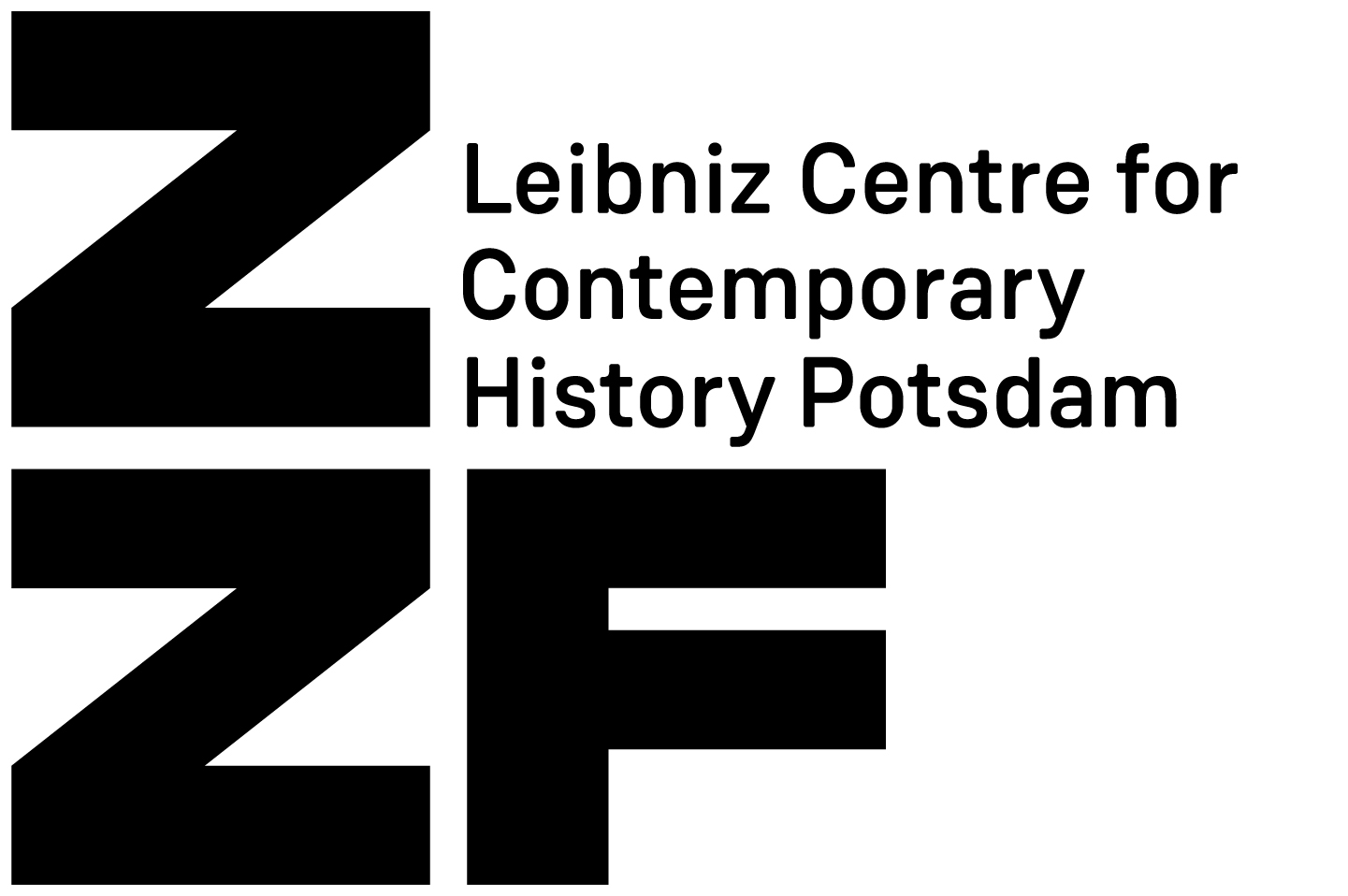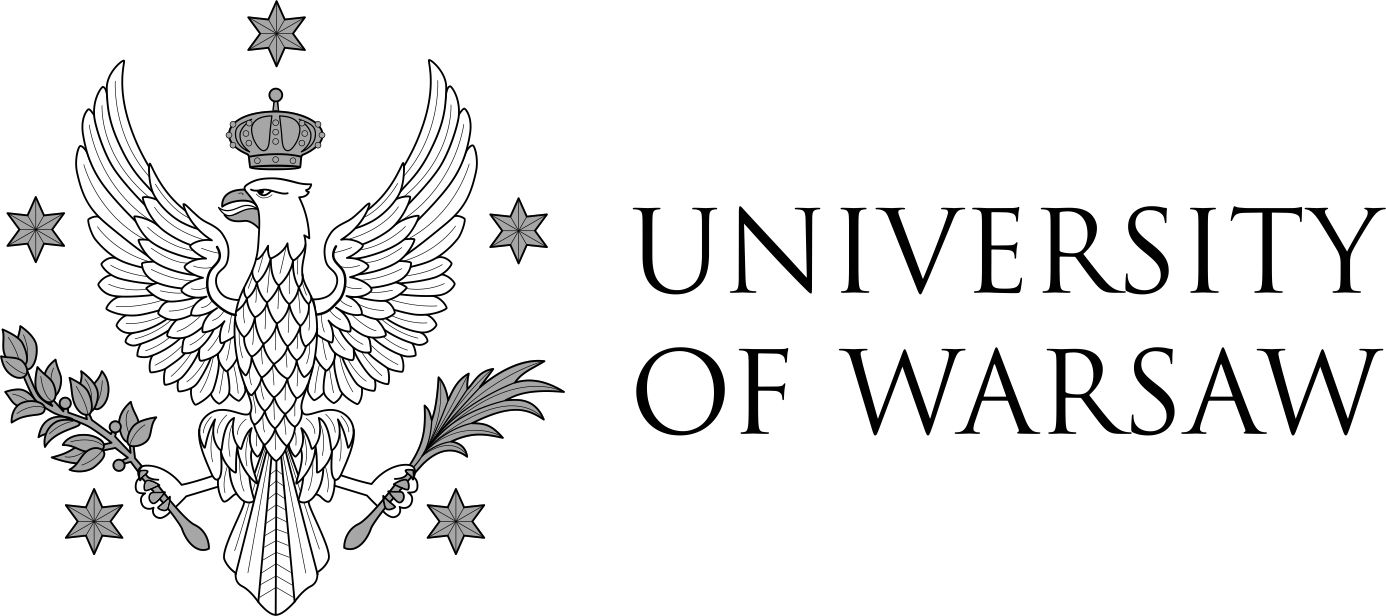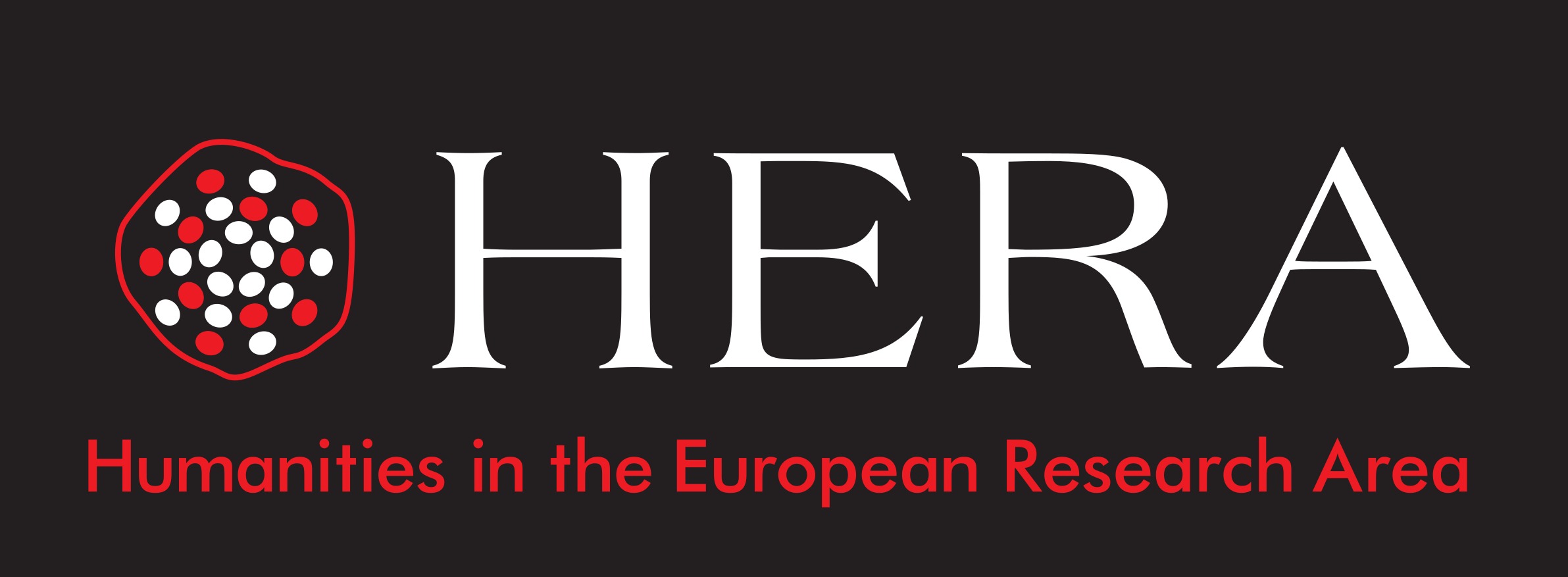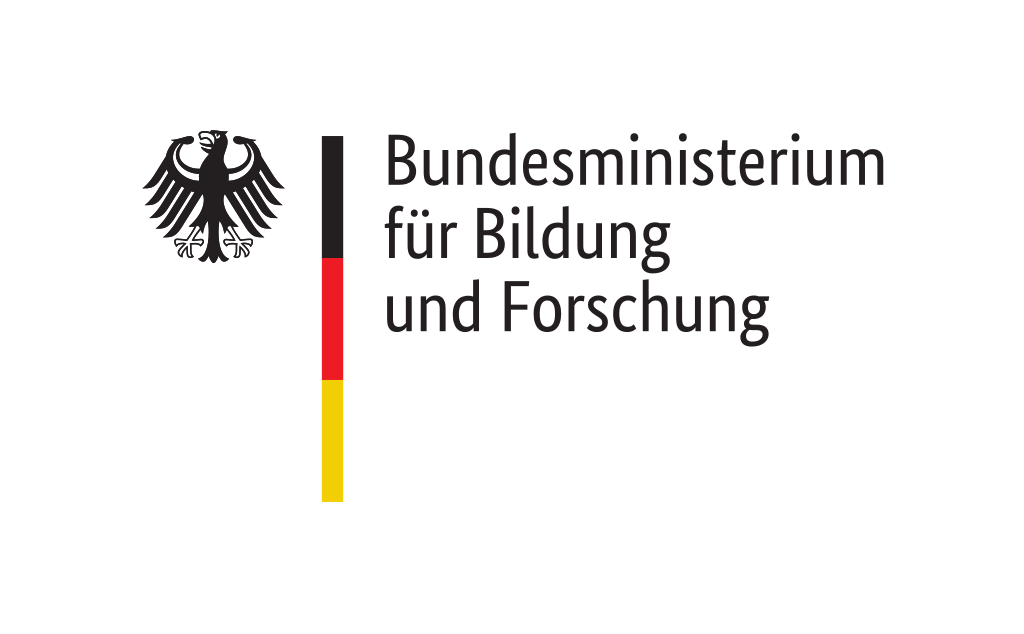Fieldwork Turned Upside Down
All was arranged. My family was ready to move places, we found a person to rent our flat, and our cat would stay with a good friend. We booked a small apartment in Dorčol close to my friends in Belgrade and I planned to become a visiting scholar at the department of Heritage Studies at Belgrade University. We organised a goodbye party and were ready to start packing.
The idea was to travel for five months. First to Serbia, then to the Republic of Northern Macedonia and to Bosnia and Herzegovina. My plan was to interview cultural actors in this part of Europe, ask them about their engagement in European cultural cooperation projects and visit the projects they had developed.
Checklist before leaving for Serbia
But then, a week before leaving, in the Netherlands as well as in Serbia a strict lockdown was announced. The numbers of victims caused by COVID-19 rapidly increased and the World Health Organisation officially announced that we were facing a world pandemic. Instead of getting used to the rhythm of South East Europe my family and I had to get used to the rhythm of being at home. At the time we still hoped we could travel at a later stage, but in time we realised that the upcoming five months would come to look quite different.
After a few weeks of adjusting to the new circumstances, I started to explore my possibilities regarding the planned fieldwork. Due to previous periods of fieldwork in 2016 and 2018 I had already built quite a network of cultural actors in Bosnia and Herzegovina, the Republic of Northern Macedonia and Serbia. I decided to use this network as a starting point and explore the possibilities of digital interviewing. I started to map all the people and organisations I wanted to speak to, developed interview guides and sent emails and hoped to be able to fill the upcoming months with several interviews.
Many artists, organisations and experts in the field of culture responded positively and that summer of 2020 I held 25 qualitative semi-structured interviews which could be added to the 40 interviews which I had undertaken in previous research and had formed the starting point of my subproject of en/counter/points.
Snapshot of different interviews held with grass-roots cultural workers in Bosnia and Herzegovina, the Republic of Northern Macedonia and Serbia, compiled by Claske Vos.
For many of the cultural actors I spoke to, the interviews provided them with a possibility to reflect on the work they had done in the past, on the conditions in which they had done this work and on the potential and challenges of developing this work while being part of European cooperation projects. COVID-19 had also impacted on their work which was seen as positive as well as negative. On the one hand it provided time to develop new projects as everything had come to a stand-still, on the other hand, concerns were growing about the sustainability of their organisations, their work and of the cultural sectors more in general. All agreed that Covid-19 did not radically alter the conditions in which they had to work since conditions were already harsh before the outbreak of the pandemic. What the pandemic did was making this more visible than ever.
Despite the inevitable issues with internet connections, the challenges of talking through screens and asking people to engage in interviews during the sunny summer days, the interviews were very valuable and highly informative. The round of interviews that were held in 2018 as a starting point for the HERA project, combined with some work I did in 2016, led to a publication submitted to the European Journal of Cultural Studies, titled: ‘Moving in and out of the European cultural space. Southeast European encounters with the Creative Europe Programme’ which is currently in the last phase before publication.
The additional source material from the interviews held in the spring and summer of 2020 will be used for a chapter within the edited volume: ‘Diversity and Belonging in Europe: public spaces, contested places, cultural encounters’ which I will co-edit with Susannah Eckersley. The chapter is called: ‘Establishing a place in the European cultural space. Grassroots cultural work and practices of self-governance in Southeast Europe’. The first draft of this chapter was presented at the Council for Europeanist Conference (CES): ‘Europe’s Past, Present, and Future: Utopias and Dystopias’, which took place 25th July 2021.
As a follow up of the interviews held in the spring and summer of 2020, I decided to invite three grass-roots cultural workers from Bosnia and Herzegovina, the Republic of Northern Macedonia and Serbia for a round table as part of my MA course in European Cultural Policy, which I teach at the University of Amsterdam. During this course I also pay attention to the theme ‘cultural activism and advocacy’ and the connections I made though interviewing provided me with a chance to introduce my students to three people that have long-term experience in the field of cultural activism and advocacy. Aida Kalender (Akcija Sarajevo), Iva Čukić (Ministarstvo Prostora Belgrade) and Elena Veljanovska (Kontrapunkt Skopje) participated in this two hour round table providing the students with first-hand insights in what it means to be a cultural activist in challenging circumstances such as those in South East Europe.
PowerPoint slide used for Roundtable on Cultural advocacy in Europe: grassroots cultural work in Southeast Europe at the University of Amsterdam March April 2021
In 2020 my fieldwork plans were turned upside down. I had to carry out my fieldwork behind my laptop and learn the new skills of online interviewing. While circumstances in Europe are slowly changing, borders are opening and travel restrictions have been lowered, long-term fieldwork for this project is no longer possible. However, in the spring of 2022 I plan to visit the people I've interviewed and also hope to organise a workshop in Skopje together with Lokomotiva (Centre for New Initiative in Arts and Culture, Skopje) and Cultural Heritage Without Borders Albania (NGO focusing on new approaches to heritage protection). During this workshop we will hopefully be able to discuss the subtheme “governing culture, heritage, and memory in place and space”, present our work in progress and involve many actors from the region which forms the locus of my particular sub-project.
If there is one thing I learned from COVID-19 it is that research does not stop when we are all forced to pause. In my case it meant changing perspective. It meant moving away from the prospect of participating in ongoing projects, observing action in the field and engaging in meetings discussing the progress of projects and turning to other forms of data gathering. It meant that my research became a moment of reflection for me as well as my interlocutors. It meant spending time with cultural actors in South East Europe and look back with them at what they had achieved in the past and discuss the challenges they faced as well as the potential they unlocked in their attempts to create critical spaces of engagement in their challenging local settings. Hopefully this will open up for new pathways in then future in terms of new research as well as in terms of ongoing practices in the field.

